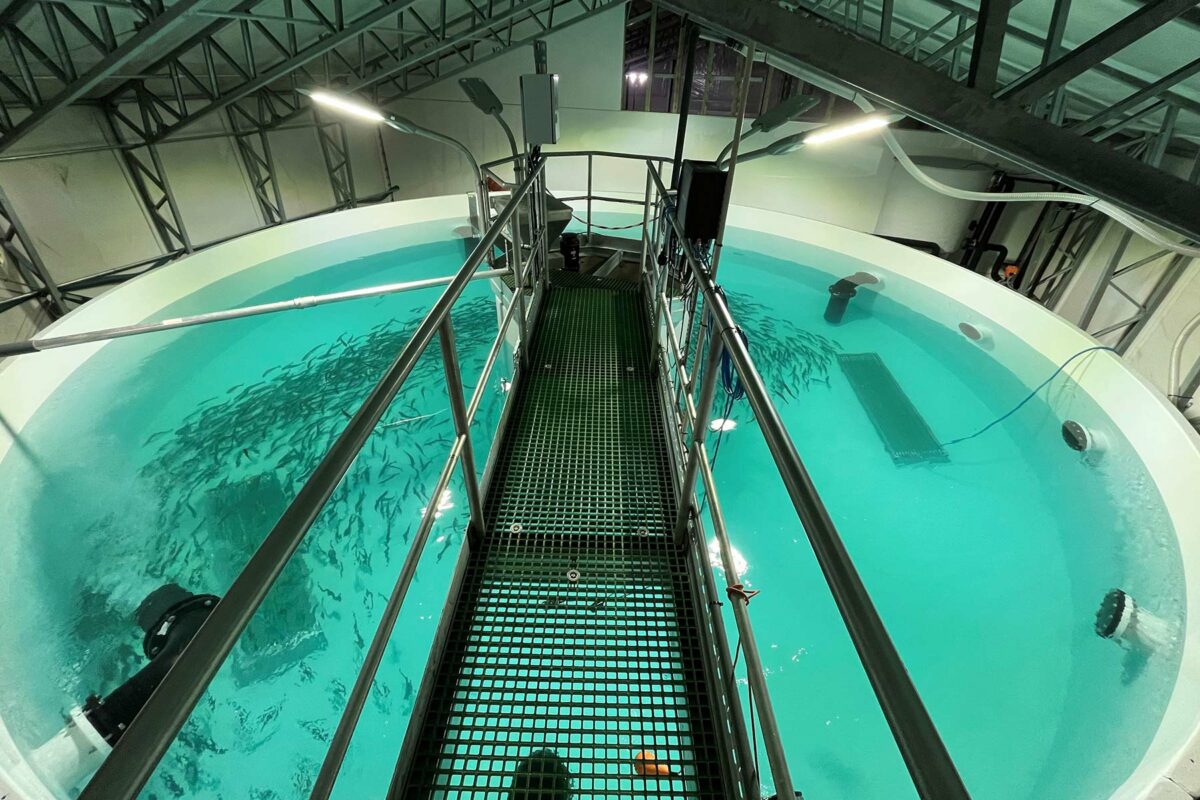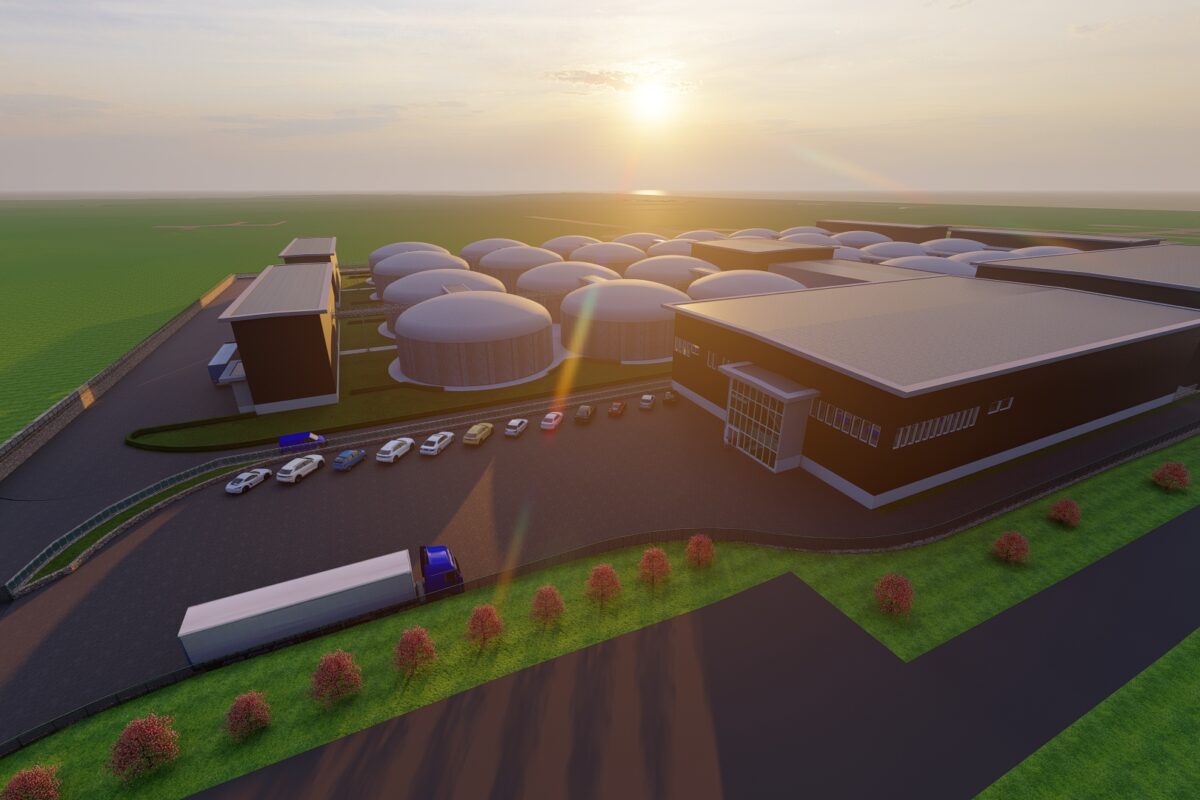Technology
The value of our circular concept
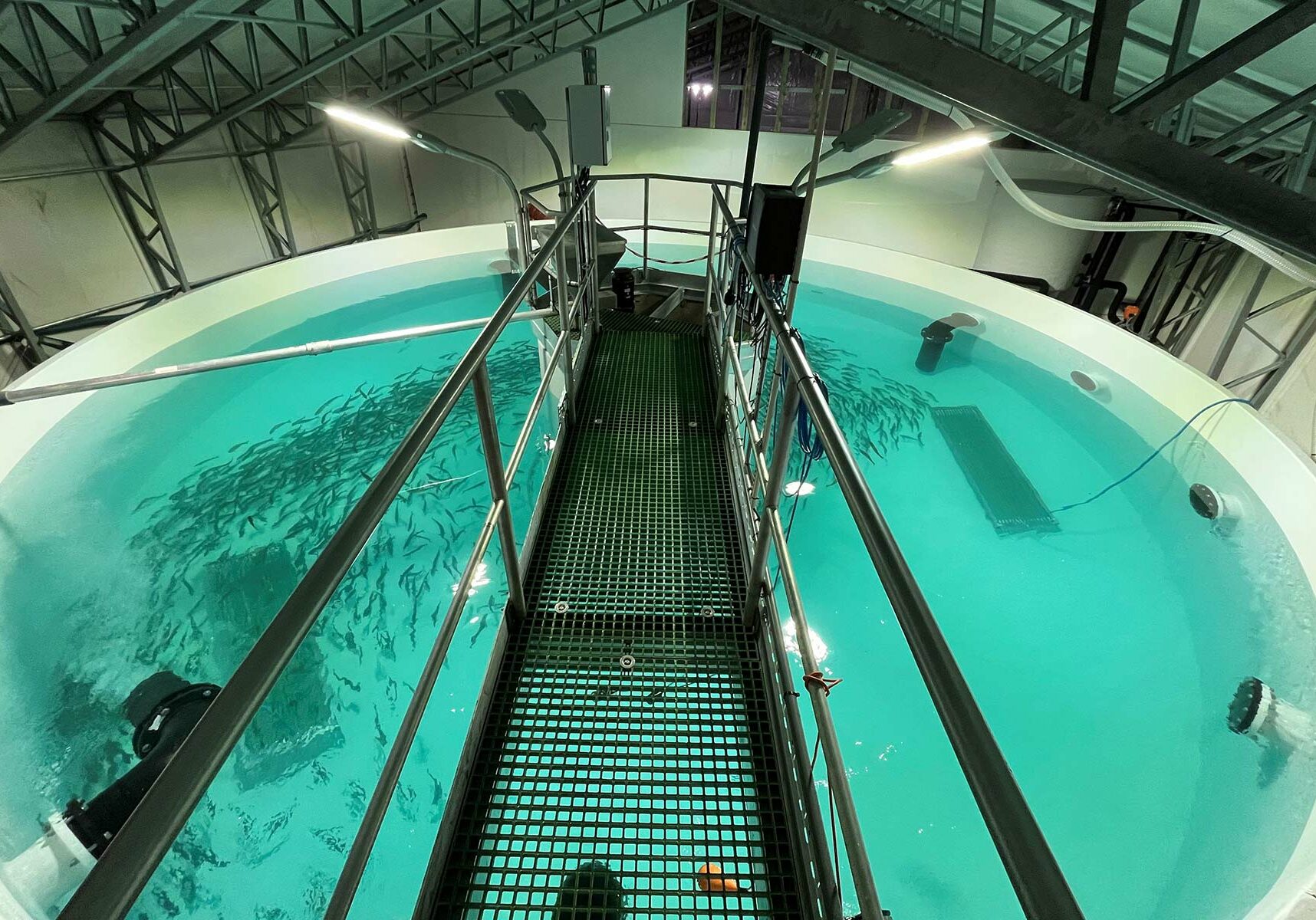
The solution lies in our land-based breeding facilities
Salmon is a vital global food resource and a tasty protein source with many important nutrients. However, salmon farming facing several challenges related to the environment and fish health, leading to stagnation within the industry.
Biological challenges, regulations and the overall high environmental footprint have presented significant hurdles that need to be addressed in the aquaculture sector.
To tackle these issues, EFC has developed a completely new circular concept, that effectively addresses challenges and creates a farming solution for the future.
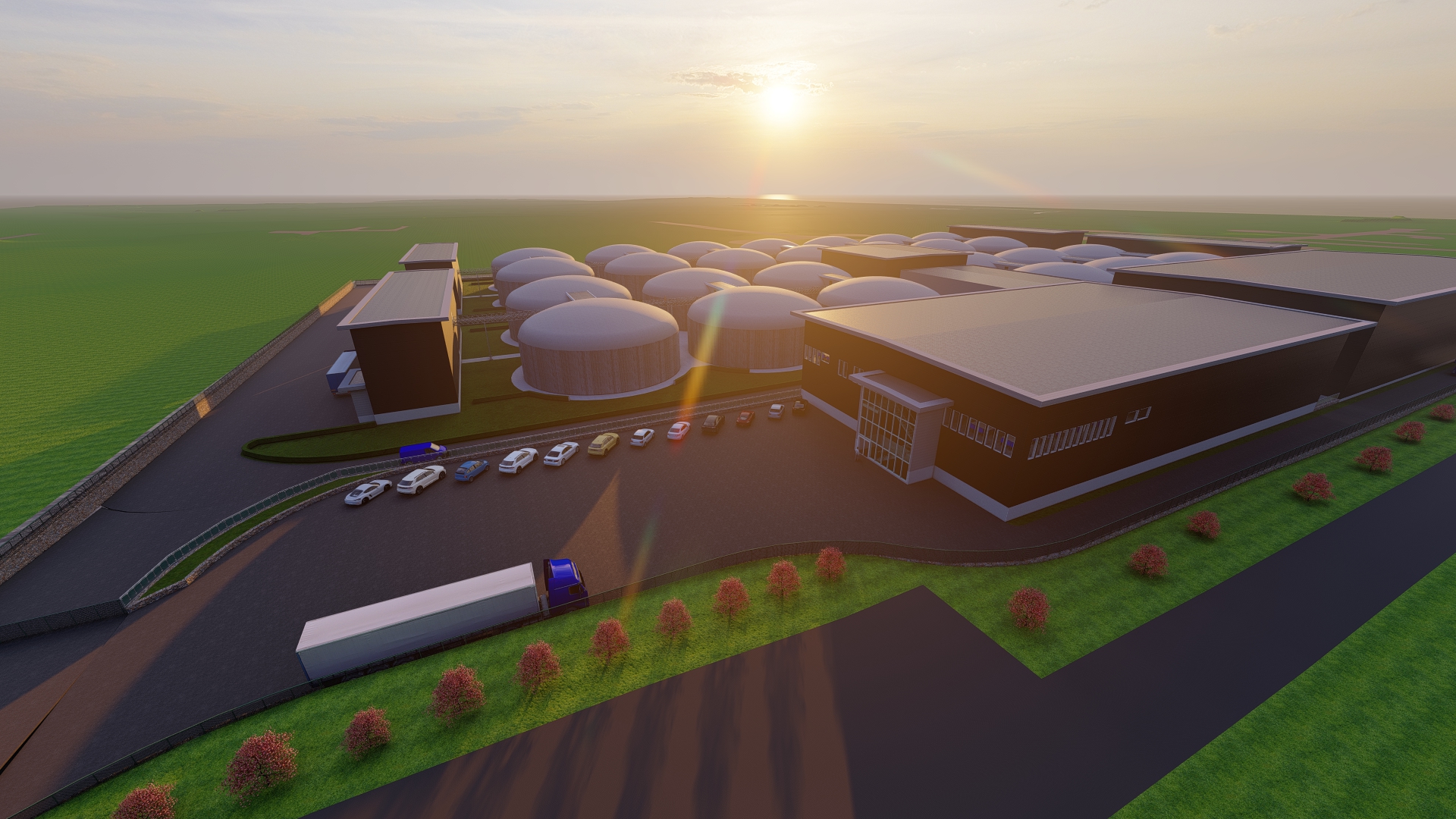
Advantages of our land-based aquaculturefacility
At EFC, we have developed m-RAS technology based on modular design, simple operations and the efficient recycling of wastewater and CO2.
Modular design
The facilities are built with standardized standalone units, which are highly space-efficient. This means that the units can be built cost-effectively with a short construction time It is also easy to scale up as additional standalone units can be easily added when there is a need to increase production capacity.
Simple operations
Our m-RAS systems are designed to be easy to operate, with low energy consumption. Through advanced control and monitoring system, we gather all the necessary data to ensure optimal fish health and maintain full control of the salmon from smolt to plate.
Mass data analysis and artificial intelligence reveal connections between growth, genetics, quality of the feed and the fish throughout the growth phase. Data is collected from sensors, in a fully automatic process. Real-time optimization is enabled due to parallel, identical tank modules.
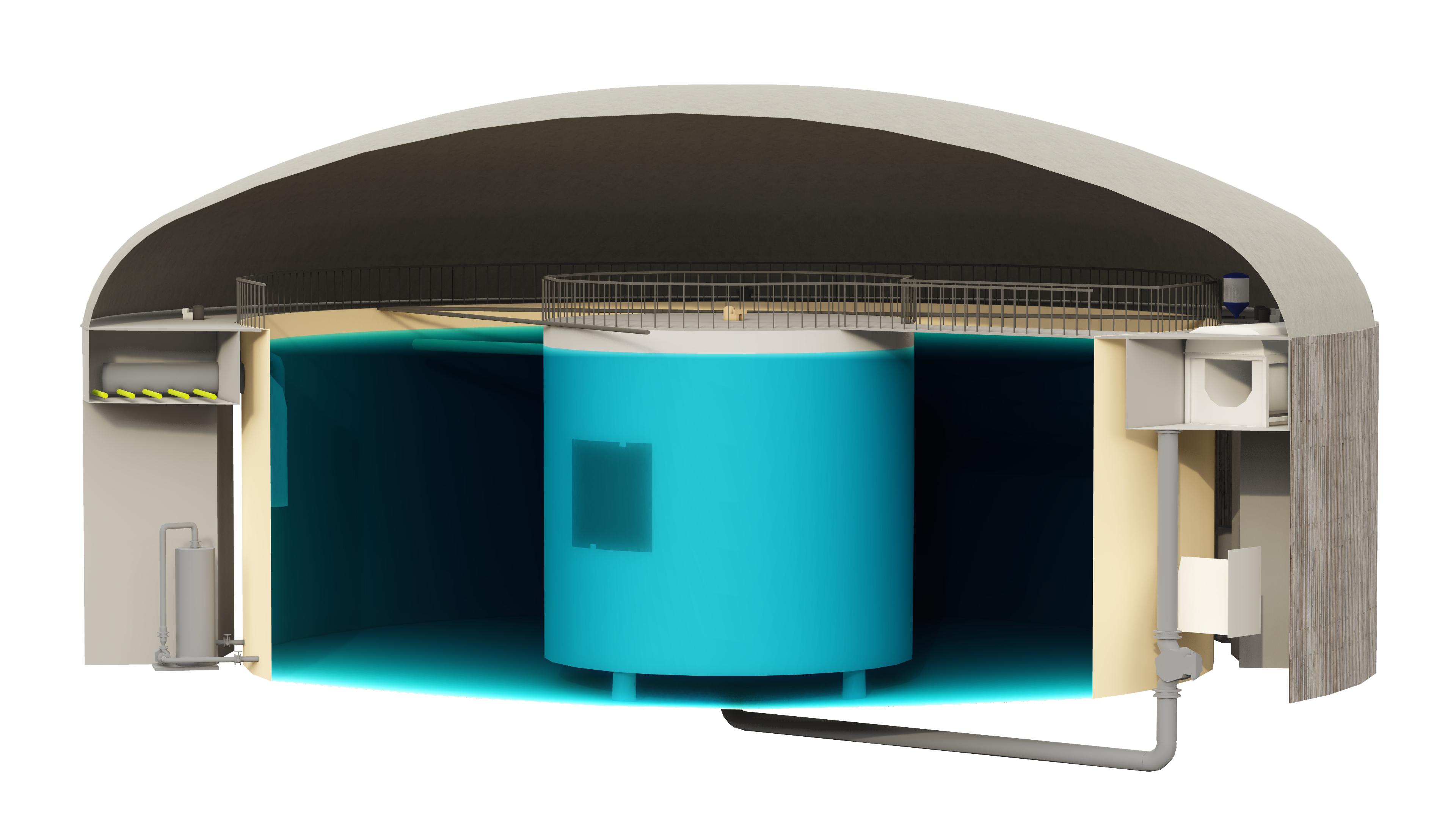
Circular process
The circular process of our facility allows us to collect sludge from the water, reuse CO2 removed from the water, and produce microalgae for wastewater treatment. This process ensures optimal living conditions for the fish in clean water while reducing emissions and carbon footprint. Around 80% of the carbon emission in aquaculture comes from the feed, which is traditionally based on soy as a protein source.
CO2 captured from the fish's respiration is recycled back as protein in the fish feed. The process, developed by Gas 2 Feed, is solely based on inorganic feedstock and therefore independent of agriculture. This leads to a dramatically reduced area required to produce protein for feed.
The overall carbon saving is 2.2 kg of CO2 per kg round fish, compared to protein from soy production. Preliminary calculations show that around 30% of the fish feed can be made from recycling the carbon, with an estimated reduction of the carbon footprint of 40%, compared to traditional farming.
This circular process will contribute to significant reduction in the ever-increasing deforestation effect from soy production, as soy for fish feed is highly land-intensive. Our solution requires 700 times less land than soy production to produce the same amount of protein.
Combined with electrolysis, EFC’s circular concept converts CO2, water and renewable energy into premium salmon and protein. We call it Photosynthesis 2.0.
Central to our concept is the technology that creates the results
This is how m-RAS works
Optimized water purification
The EFC m-RAS has a compact design with a centrally located biofilter. All water recycling is isolated to each tank, to ensure stable water quality and avoid cross-contamination to the rest of the aquaculture facility.
Biofiltration, CO2-removal, particle removal and oxygenation occur in parallel, which facilitates the optimization of water quality and power consumption throughout the entire life cycle of the fish.
EFC works closely with HydrogenPro, which supplies new cost-effective systems for electrolysis and green hydrogen production.
Advanced tracking and control
An array of advanced sensors automatically collect data, which is processed using blockchain technology for secure data handling, ensuring high food safety and accurate information about fish welfare.
EFC has obtained exclusivity from Queen's University in Belfast to use their biomarkers as traceability identifiers in salmon fillets. These biomarkers are completely natural and harmless providing information about where the origin of fish, the quality of consumed feed, water quality, and a various other measurable data points.
The entire operation and reporting of data are carried out through automated processes.
Standardization
Standardization of the facilities is a key factor. Simple and smart fish tanks are built as independent units, allowing for rapid and cost-effective commissioning almost anywhere. The compact design also requires minimal space.
All procedures and the entire operating process are standardized and well-tested at our testing facility in Hausvik, ensuring the efficient production of premium salmon with excellent fish health and a minimal environmental footprint.
Summary
EFC's value proposition is to offer sustainable, premium salmon with improved welfare using a cost-effective and proprietary system.
Lower production and investment costs
Simple and proprietary technology
Low energy consumption
Low investment cost (CAPEX)
Sustainable premium salmon
Stable water quality for optimal growth
Carbon capture
Wastewater treatment
Stable supply without seasonal effects
Improved fish welfare
Minimized biological risk
Low mortality
No lice or diseases
No use of antibiotics
No escape
Innovative farming system
Traceability through biomarkers
Advanced control system for optimal fishing and water quality
